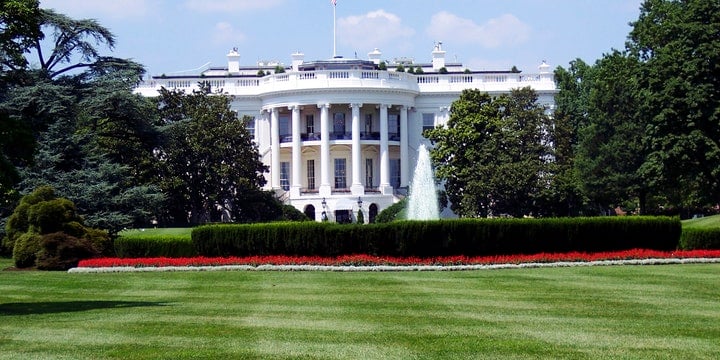This post contains references to products from one or more of our advertisers. We may receive compensation when you click on links to those products. For an explanation of our Advertising Disclosure, visit this page.
There’s a lot of hype about how the government shutdown may affect your travel plans. Things are not getting any better. Transportation Security Administration (TSA) officials have been calling in sick and even quitting. No one wants to work for free and may not be able to, even if the government says workers will be compensated (late) when it reopens.

The Government Shutdown and Airports
While it is true that there are fewer employees performing routine duties in the aviation sector, safety compromises are not being made by airlines. Most travelers say airports are operating as usual outside of peak hours. Still, here’s how the government shutdown might affect you and what you can do about it.
Longer Security Lines
Prepare for longer waits at TSA due to shortages of staff at some (not all) airports. Atlanta was actually reporting lines of longer than an hour on some days, but that seems to be an anomaly. If you have expedited clearance through TSA Pre-Check or CLEAR, be sure to find out which terminals at your airport are offering it. Not sure? Check the airport’s website or reach out to them on social media. Many airports operate pretty active Twitter or Facebook accounts.
Now could also be a good time to sign up for both of those expedited security programs (TSA Pre-Check applications are funded by third-party fees so not affected by the shutdown). Delta is offering its Diamond Medallion members complimentary CLEAR membership. Other Medallion members can join the program at a discount, courtesy of Delta.
Members of the frequent flier community website Flyertalk.com are reporting most airports are operating as normal except for longer lines at peak travel times and fewer security lanes open. Consider going through security at less busy terminal entrances at your airport. Some checkpoints usually have a bottleneck based upon their position closer to the entrance. Others may see less traffic.
Security Lane Shortcuts
If your airport has multiple security lanes in different terminals (and the terminals are connected to each other once past security), consider using an alternate.
For example, Charlotte often has fewer wait times at the checkpoint closer to D and E terminals. LAX fliers should know that one of the shortest ways to access security is by using the “Connecting Flights” checkpoint at the Tom Bradley International Terminal (also connected to terminals 4-8). You can access it via the baggage claim level. This can save substantial time if the lines at the departure level of other terminals look longer than normal.
While these shortcuts are great to look for, keep in mind that others like them may not be open. For example, both the “Skyway checkpoint #10” and InterContinental hotel checkpoint at Minneapolis/St. Paul are not open during the shutdown, according to Flyertalk. Before getting in line, ask if there is a shorter alternative in a different terminal for your airline.
Some Issues Persist
If you are thinking about applying for or renewing Global Entry, this process may take longer than usual. Some pre-scheduled appointments have been canceled.
While flight delays may not necessarily be growing because of the shutdown, travelers should plan accordingly. Again, airports usually post this information on their websites or via social media. So far, airlines have not scaled back their operations in any noticeable manner.
If you are applying for a passport, most applications continue to be processed because these are funded by user fees. A smattering of offices may be closed due to being located within federal buildings, but otherwise, applications are being processed. If you want to add another layer of assurance, consider going through an expediting company like RushMyPassport.com. This can route applications to the most convenient office.
Bottom Line
Essential employee roles that cover security and safety roles are still working, despite the government shutdown. This includes air traffic controllers, federal air marshals, and security screeners. So far, things continue to operate as usual, but be on the lookout for potential delays during peak hours while the government shutdown drags on.





